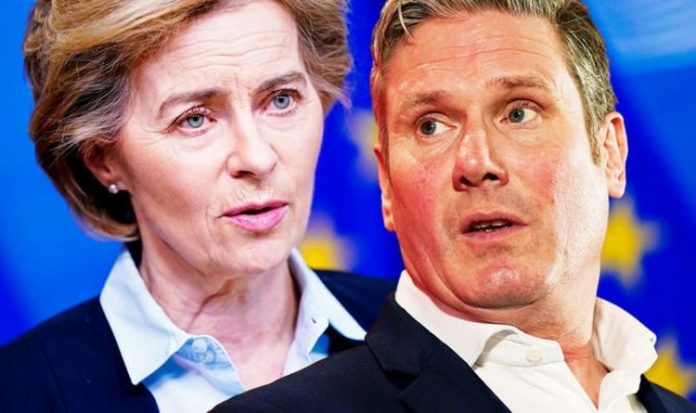Jeremy Corbyn – as well as Brexit – were key reasons for the Labour Party’s dismal performance at the December 12 general election, the Diagnosis of Defeat report found. More than half of the defectors, three quarters of whom chose the Conservative Party, said that Labour would “need to change very significantly” before they would return to the fold. The report published earlier this year was written by Lord Ashcroft and was based on a poll of more than 10,000 voters as well as focus groups in traditional Labour heartlands that turned blue.
The billionaire and former Tory grandee also claimed traditional Labour voters deserted the party because it had lost touch with them and “looked down on them while taking their voters for granted”.
The Brexit position the party eventually settled on – that Labour would support a second referendum between Remain and a renegotiated deal – was also largely unsuccessful, not least since it was largely seen as the party shifting towards a more pro-EU position.
However, in an exclusive interview with Express.co.uk, Ashford Councillor and general secretary of the Labour Leave campaign Brendan Chilton argued the Labour Party will turn more eurosceptic once Britain leaves the bloc for good.
He explained: “We are going to be in a position where we can do all sorts of things outside the EU that we couldn’t do while we were in.
“For example, on state aid we can be far more flexible on the use of state aid to support businesses and create jobs.
“The Labour Party has an historical mission to create full employment and if you use the levers of the state and spend it and borrow it to do that… it would be brilliant!
“On immigration, the Labour Party has said on many occasions that it believes in a free fair and open immigration system.
“Well, at the moment, as members of the EU, because we need to ensure there are controls, we don’t have that.
JUST IN: Labour insider exposes Starmer’s real Brexit test
The prominent eurosceptic added: “Similarly as well, as a member of the EU we have been very restrictive on what we can do to support manufacturing in this country.
“Being a member of the single market, there are set aside grants to support factories moving to poorer countries of the EU like Eastern Europe to create jobs.
“But outside the bloc, we will be able to do that in the UK. We’ll be able to create economic zones in the Midlands or wherever else to move employment there-
“You’ll have a British state much more interventionist than while we were in the EU.
“And Labour will like that.
“Five, ten years down the line and when they’ll ask us whether we want to go back into that bloc, we’ll be ‘no!'”







